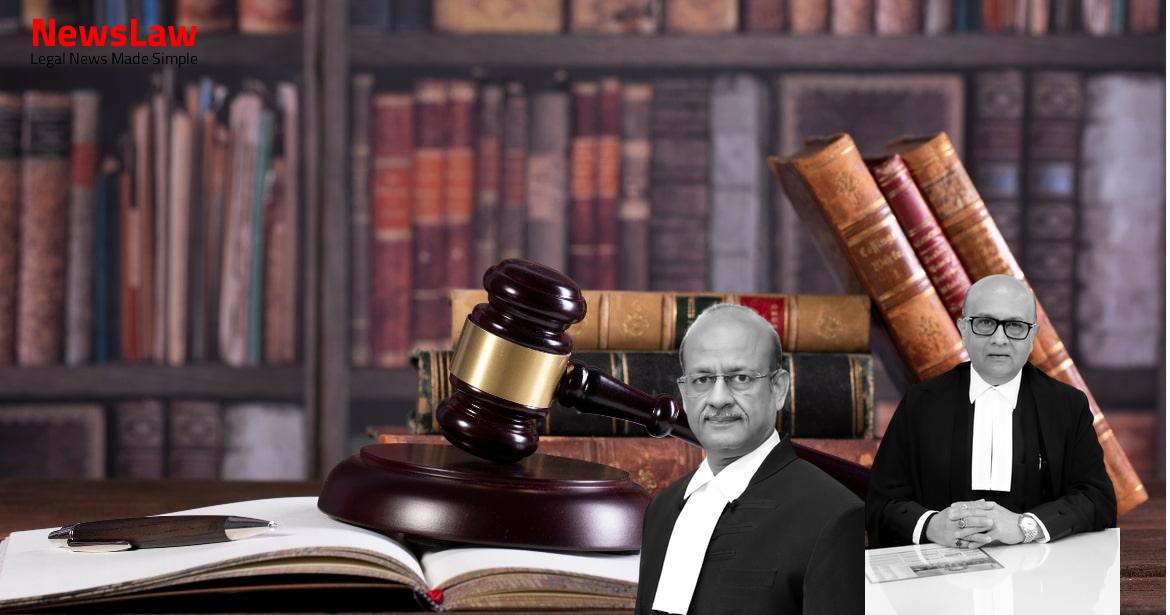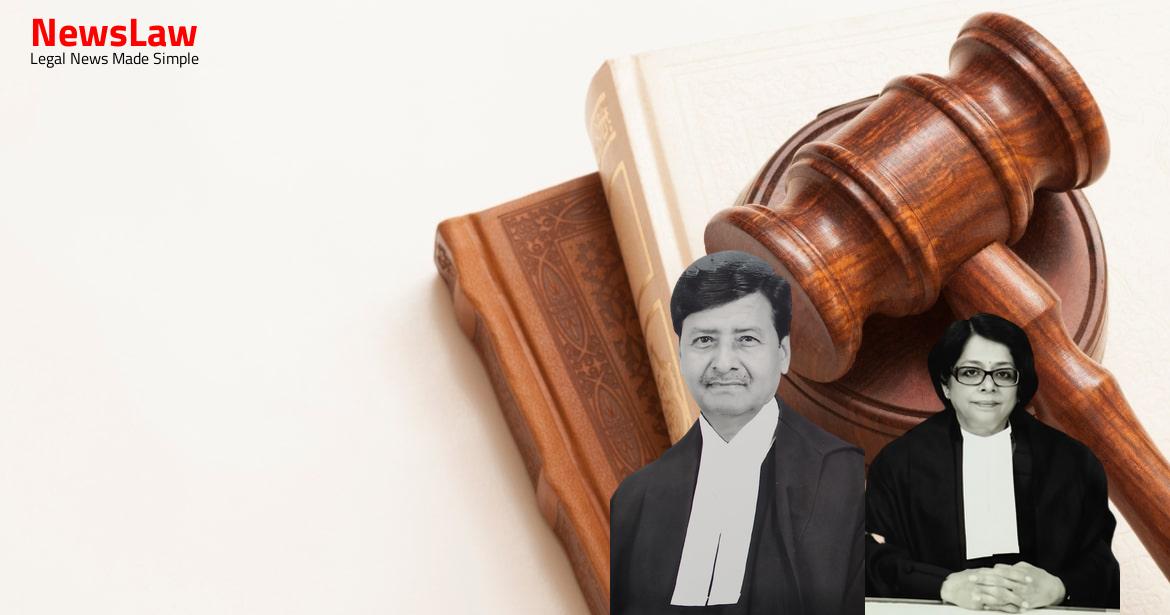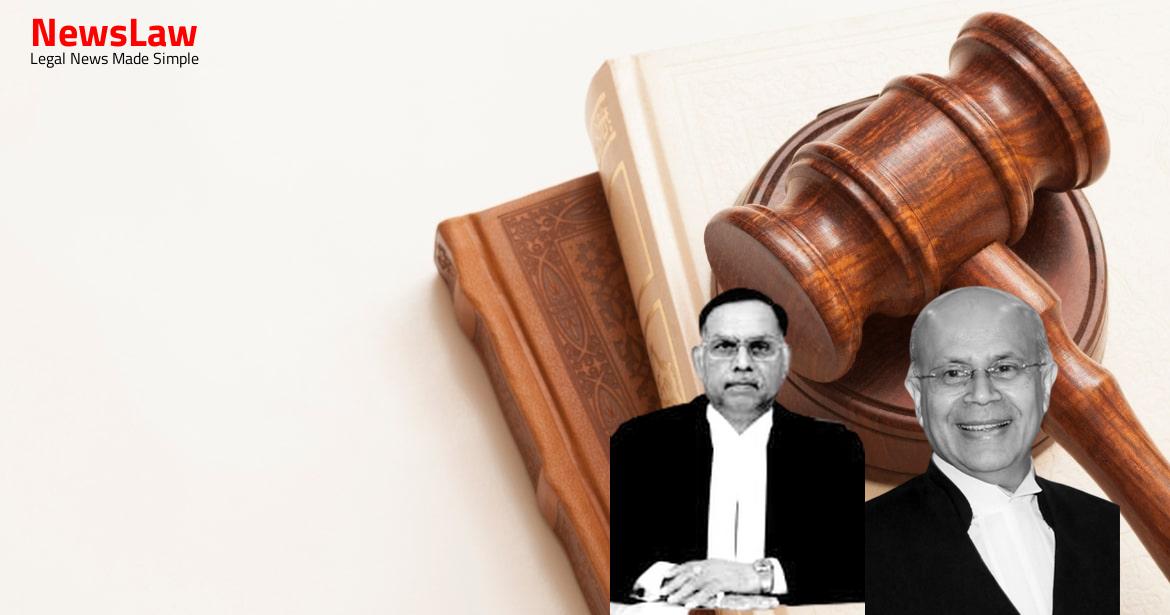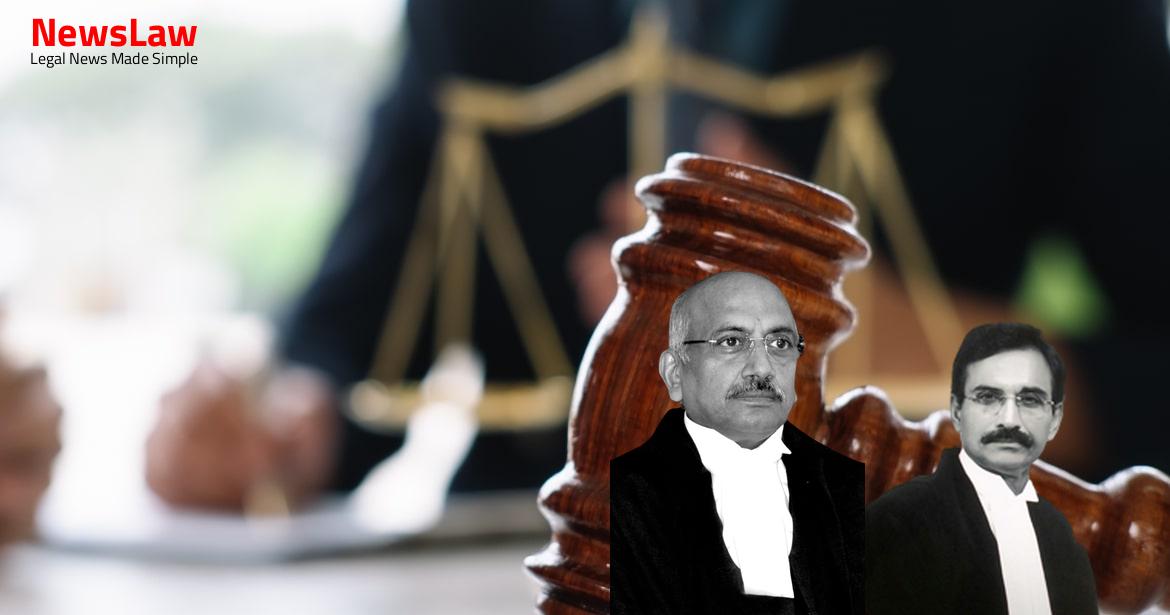In a recent landmark judgment by the Supreme Court of India, the case concerning ownership liability in a vehicle compensation dispute involving Hindustan Motors and Vaibhav Motors has been decisively settled. The Court’s ruling sheds light on the critical aspects of the Motor Vehicles Act and the responsibilities of vehicle owners in compensation claims. Stay tuned to learn more about the implications of this significant legal decision.
Facts
- The appellant, a dealer of Hindustan Motors, sold a vehicle to the deceased on a principal-to-principal basis.
- The deceased and the driver of the vehicle were employees of Hindustan Motors.
- Legal heirs of the deceased filed a claim petition for death compensation under the Motor Vehicles Act.
- The High Court allowed the claimants’ appeal and enhanced the compensation.
- The appellant questioned the award holding him liable for the compensation as well.
- The appellant was considered the owner of the vehicle at the time of the accident.
- The Special Leave Petition was filed against the High Court’s order by multiple respondents including the legal heirs and representatives of the deceased.
- The Tribunal held that on the day of the accident, M/s. Hindustan Motors was the owner of the vehicle.
- Vaibhav Motors was in possession of the vehicle as its dealer.
- The Supreme Court issued notice only to the manufacturer (M/s Hindustan Motors) and dismissed the SLP in relation to other parties.
- The impugned award has attained finality regarding the rights of the claimant-respondents.
- The Registry initially showed six respondents but later displayed M/s. Hindustan Motors as the sole respondent.
- Based on this, the Tribunal held M/s. Hindustan Motors and M/s. Vaibhav Motors jointly and severally liable for the compensation awarded.
Also Read: Analysis of Eyewitness Testimony and Circumstantial Evidence in a Murder Case
Issue
- Whether the appellant, a dealer of Hindustan Motors, can be considered the owner of the vehicle and held jointly and severally liable with Hindustan Motors for compensation.
- Whether clauses 3 (b) and 4 of the Dealership Agreement absolved Hindustan Motors from liability as an owner.
- Whether prior to the accident Hindustan Motors had sold the offending vehicle to the dealer, M/s. Vaibhav Motors.
Also Read: Dismissal of Employee based on Guilty Plea Set Aside by High Court
Arguments
- On the date of the accident, the owner of the vehicle was M/s. Hindustan Motors in whose name the vehicle was temporarily registered.
- There was no evidence that the vehicle was transferred to the appellant.
- The driver and the deceased were both employees of M/s Hindustan Motors, and they took the vehicle from the dealership for a test drive, establishing that the vehicle was in the control and possession of M/s Hindustan Motors at the time of the accident.
- The liability for compensation lies with the owner of the vehicle, including the driver.
- According to Section 2 (30) of the M.V. Act, the ‘owner’ is defined as the person in whose name a motor vehicle stands registered.
- The Dealership Agreement between the appellant and M/s. Hindustan Motors is not an agreement of hire-purchase, lease, or hypothecation, therefore the dealer does not become the owner of the vehicle as per the Act.
- Clauses 3 (b) and 4 of the Dealership Agreement, which are relied upon to attribute liability to the appellant, concern defects in the vehicle and not claims for compensation arising from accidents involving the vehicle.
Also Read: Boundary Dispute in Mining Operation
Analysis
- Section 166 of the M.V. Act specifies who may file for compensation, while Section 168(1) speaks about the award by the Tribunal.
- The liability for compensation falls on the insurer, owner, or driver of the vehicle involved in the accident as specified by the Claims Tribunal.
- The concept of ‘ownership’ of a vehicle under the M.V. Act is crucial for determining liability for compensation.
- The case mentions that regardless of possession, the owner of the vehicle would be liable for compensation.
- The liability of M/s. Hindustan Motors can be absolved through the modification of the award under Order 41 Rule 33 of the CPC.
- The judgment distinguishes between the definitions of ‘owner’ under the old Act and the new M.V. Act, 1988.
- In cases involving requisitioned vehicles, the control and liability for accidents can shift depending on possession and control.
- The Court discusses the vicarious liability of employers for the actions of employees under their command and control.
- A financier may not be considered the ‘owner’ of a vehicle under the M.V. Act if they do not have control over the vehicle.
- The power of appellate courts under Order 41 Rule 33 of CPC to modify awards is highlighted in the context of liability disputes.
- The issue under consideration is whether M/s. Vaibhav Motors, as a dealer in constructive possession of the vehicle, can be held liable for the accident when the vehicle belonged to M/s. Hindustan Motors and was being driven by their employee at the time of the accident.
- The Tribunal’s finding that M/s. Hindustan Motors did not produce evidence of selling the vehicle to the dealer remained undisturbed.
- The clauses in the agreement deal with M/s. Hindustan Motors’ liability for any defects in the motor vehicle and do not absolve them of tortious liability.
- The power under Rule 33 of Order 41 CPC is exercised to avoid conflicting decrees and achieve justice.
- The vehicle was registered in M/s. Hindustan Motors’ name, and the hire-purchase agreement was canceled. The vehicle possession determines ownership.
- The dealer had no authority to deny M/s. Hindustan Motors’ employees from taking the vehicle for a test drive as they were representatives of the owner.
- The interpretation of ‘owner’ of a vehicle is not limited to the definitions in the M.V. Act, especially in cases where the owner was in control of the vehicle.
- M/s. Hindustan Motors could not shift its tortious liability to the dealer under the Dealership Agreement.
- The Tribunal found M/s. Hindustan Motors, the owner, liable for compensation as their employees were in control of the vehicle during the accident.
- The possession or control of a vehicle plays a crucial role in determining liability, and the owner, in this case, was responsible for compensation.
- The power under Rule 33 of Order 41 CPC is to be exercised cautiously to avoid prejudice to any party not appealing.
- The clauses in the Dealership Agreement did not absolve M/s. Hindustan Motors of liability, and they were held liable for compensation by the Tribunal.
- At the time of the accident, only employees of M/s. Hindustan Motors were present in the vehicle, establishing their control and ownership.
- M/s Hindustan Motors cannot question the liability now
- The appellant should not be burdened with the liability to pay compensation
- Apart from the driver, M/s. Hindustan Motors alone is liable for the compensation awarded
Decision
- SLP was dismissed for the claimant-respondents on 23.10.2018.
- The awarded compensation can be recovered jointly or severally from the owner, dealer, and driver of the vehicle.
- The appellant is allowed to recover any paid amount at a rate of 6% p.a. from the date of payment till the date of recovery.
Case Title: VAIBHAV JAIN Vs. HINDUSTAN MOTORS PVT. LTD. (2024 INSC 652)
Case Number: C.A. No.-010192-010192 – 2024



